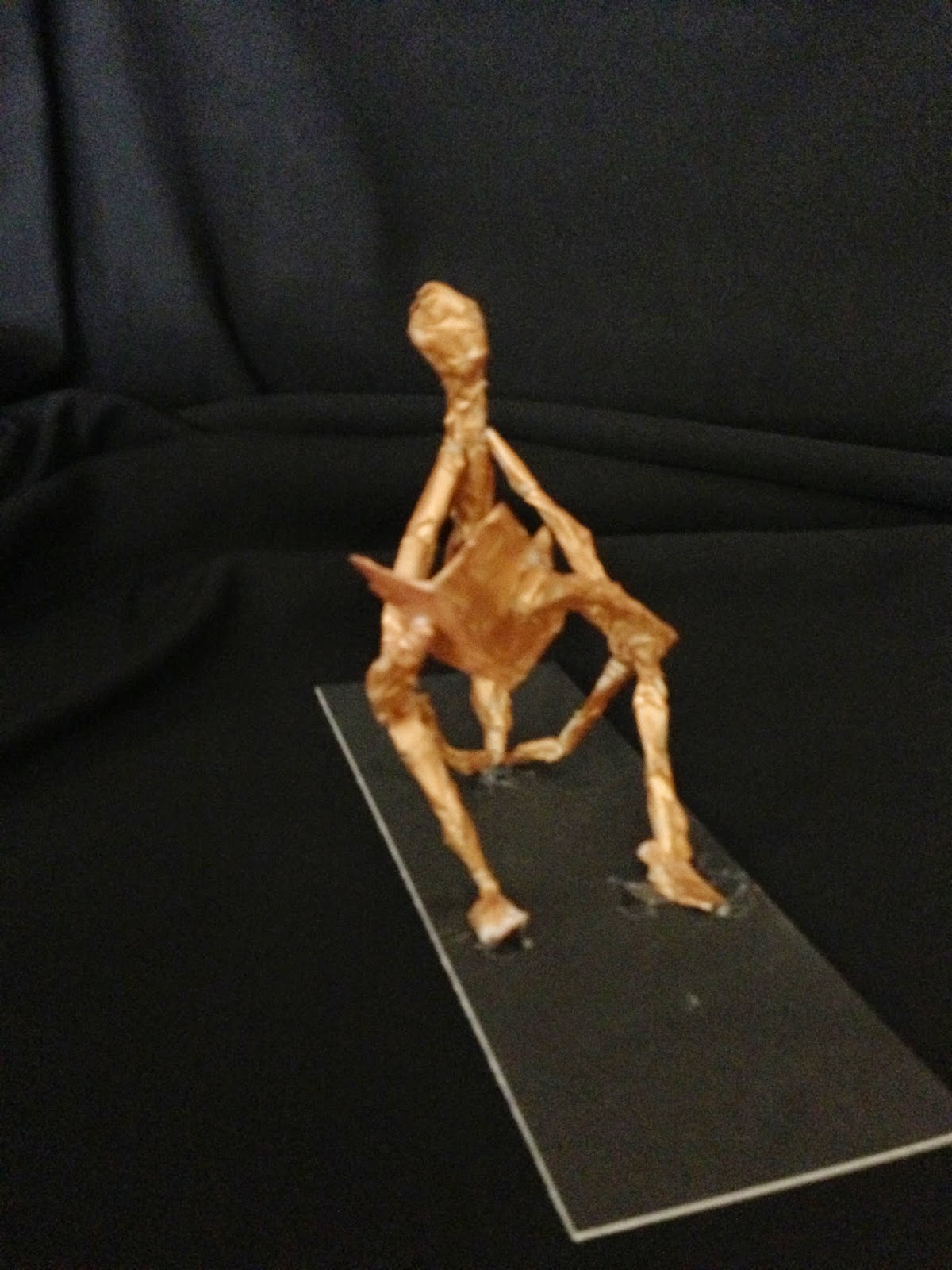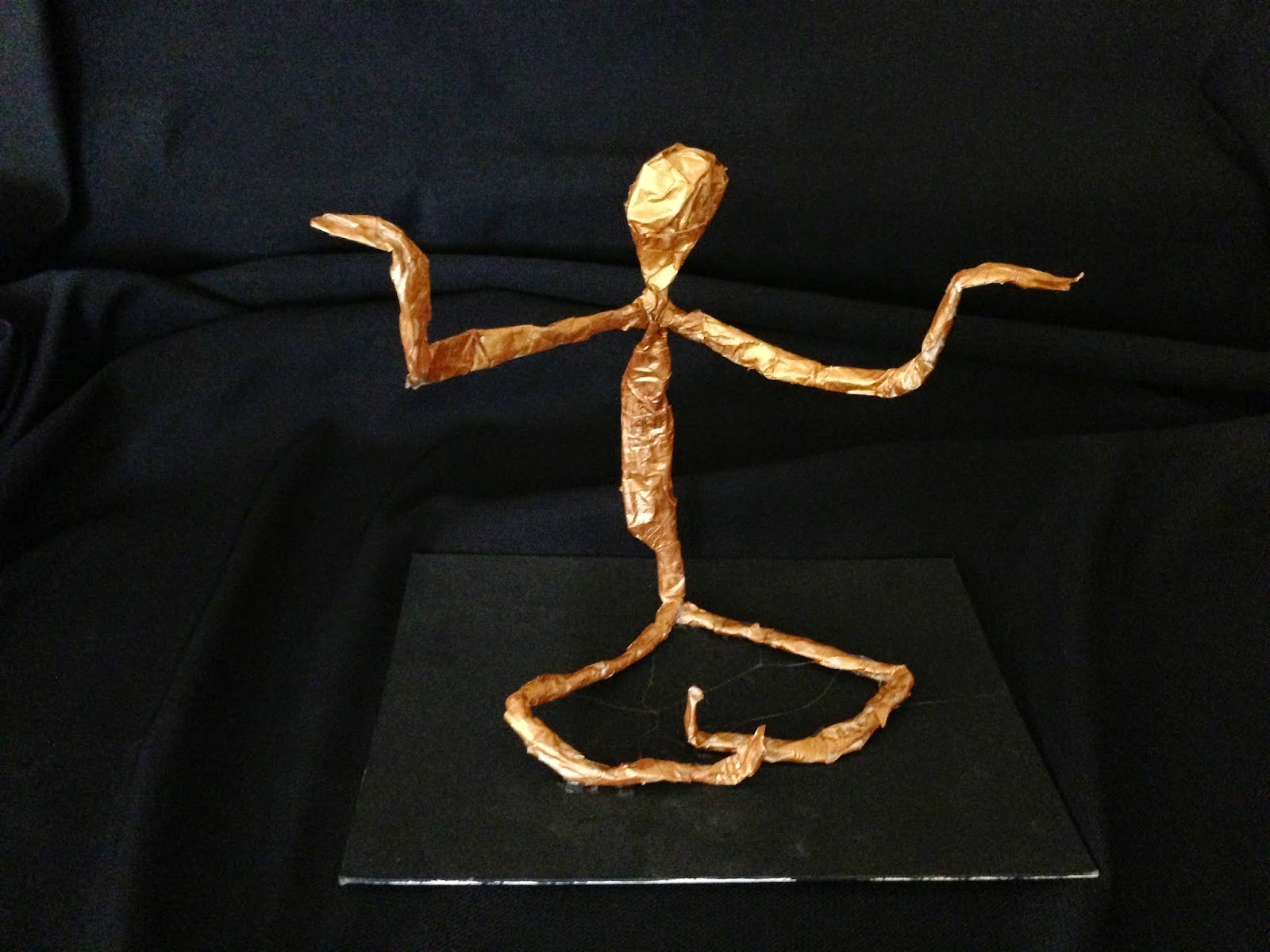This lesson was inspired by photos found on the following blog. Thanks for sharing! http://www.knutselidee.nl/ideeen/beeldjes.htm
Fourth
Grade Figure Sculptures
Inspired
by the work of Surrealist Artist, Alberto Giacometti
Fourth graders learned about the Surrealist art
movement and Swiss artist Alberto Giacometti (1901-1966). Surrealism was a literary and art movement that began around 1920. It was heavily influenced by the events of
World War One and the work of psychiatrist Sigmund Freud. Surrealism was meant to express the artist’s
imagination from dreams and the subconscious. Surrealist works feature the element of
surprise. They often include images of things that we know do not exist in real
life, or they show situations that could not possibly happen. They are often odd, illogical, irrational,
disturbing or exciting.
Giacometti’s sculptures of
human forms were elongated and had a cast shadowlike quality to them. In 2010, one of Giacometti’s life size bronze
sculpture of a man sold at auction for $104,000,000- that’s ONE HUDRED FOUR
MILLION DOLLARS!
Fourth graders worked with
wire to create their armatures (sculpture frames) and then wrapped them with
newspaper strips and masking tape.
Finally figures were posed, painted with metallic paints, and mounted in
position.
MA Curriculum Frameworks- 1.1 Use a variety of materials and media , and understand how to use them to produce different visual
effects 1.2 Create artwork in a variety of two-dimensional (2D) and
three-dimensional (3D) media, 1.3
Learn and use appropriate vocabulary related to methods, materials, and
techniques 1.4 Learn to take care of materials and tools and to use them safely 5.2 Classify artworks into general
categories, such as painting, printmaking, collage, sculpture, pottery,
textiles, architecture, photography, and film 5.3 Describe similarities and
differences in works, and present personal responses to the subject matter,
materials, techniques, and use of design elements in artworks 3.10 Create 2D
and 3D images that are original, convey a distinct point of view, and
communicate ideas 2.4 For shape and form, explore
the use of shapes and forms in 2D and 3D works.










No comments:
Post a Comment